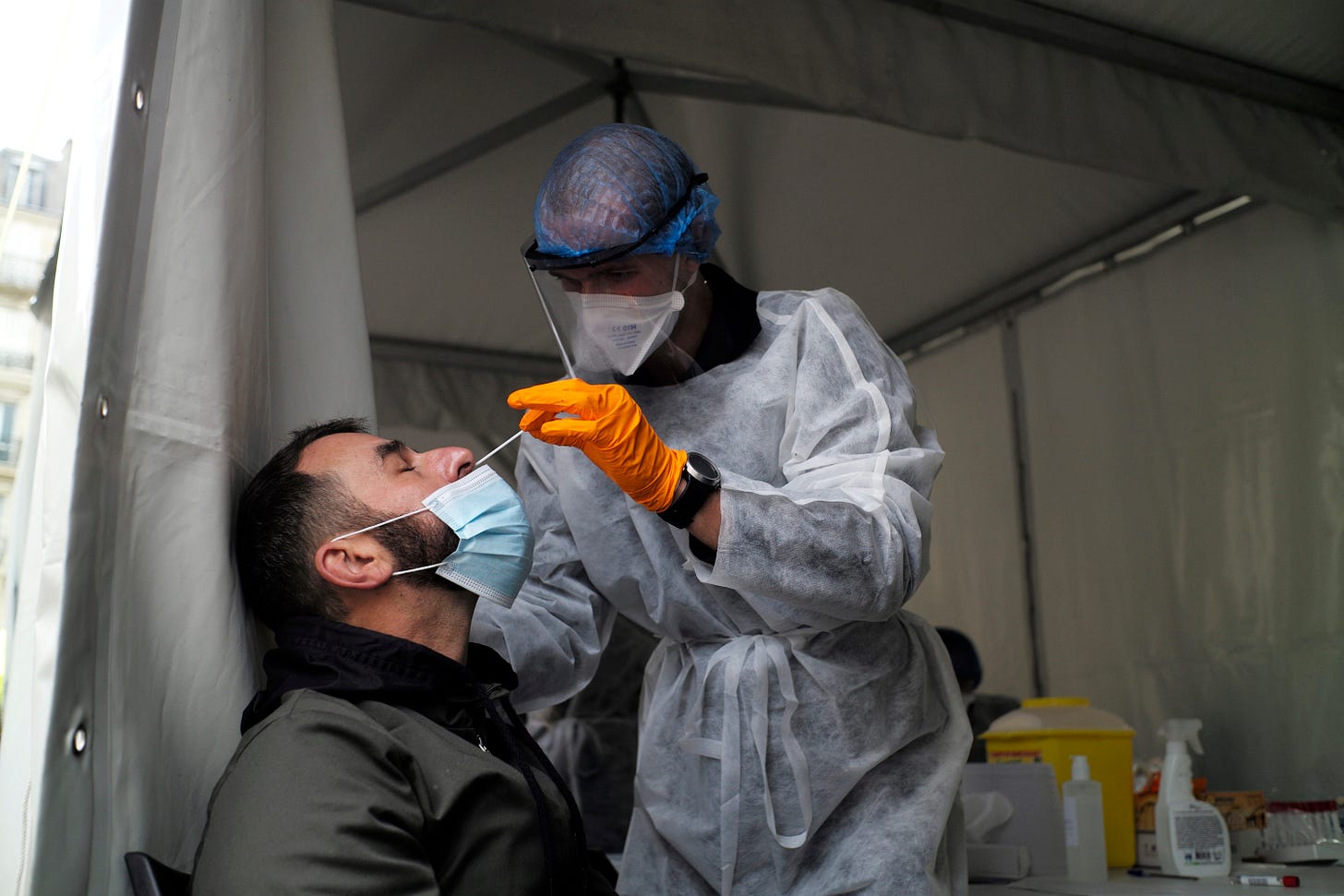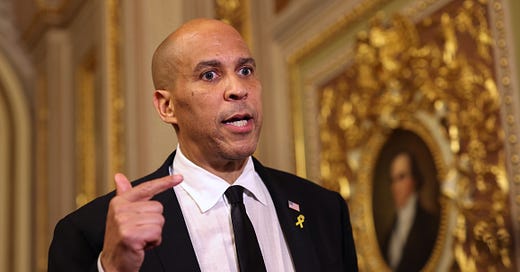

About 30 percent of voters rank the economy as their top issue, with another 30 percent or so putting COVID-19 and health care at the top as well. This goes across all the divides: rich and poor, Republican and Democrat, decided and undecided, old and young, suburban and urban. Most people are concerned about having enough money and being physically healthy.
Go figure.
But this past weekend, at rallies in Michigan and Wisconsin, Donald Trump barely mentioned the COVID-19 pandemic. And had hardly anything to say about health care, either.
Oh, he got the usual “lock her up” chant going (this time for Michigan Gov. Gretchen Whitmer rather than Hillary Clinton) and said that re-electing him would result in “surging prosperity.” And he threw in some super-subtle rumblings about how the suburbs were in danger of having the wrong people living in them if Joe Biden becomes president.
But the president’s closing argument sounded less like an attempt to win votes than the usual riffing he does when he calls into Hannity.
Wisconsin is currently seeing one of the worst coronavirus outbreaks in the country, with a record numbers of nearly 4,000 new cases reported the day before Trump spoke in Janesville. The surge of infections has pushed Wisconsin state officials to open an emergency field hospital.
Meanwhile, outbreaks of COVID-19 in Michigan have sent new daily cases surging to the highest single-day level since the pandemic started. Even the Upper Peninsula, a rural region that was once relatively untouched by the virus, has seen jumps in COVID-19 cases.
One of the few times Trump has mentioned health care was in response to a question regarding the Affordable Care Act during last week’s NBC town hall broadcast with correspondent Savannah Guthrie. “You’ve been in office almost four years,” Guthrie said. “You had both houses of Congress, Senate and House, in Republican hands. And there is not a replacement yet. . . . The promise was repeal and replace.”
“Look, look, we should be on the same side,” Trump answered. “I want it very simple. I’m going to put it very simple. We would like to terminate it and we would like to replace it with something that’s much less expensive and much better. We will always protect people with pre-existing conditions.”
This is, just as a matter of politics, a terrible position to be trying to sell to the public. Trump and Republicans still talk about the ACA like it’s 2010 when the truth is that the public now supports it by wide margins.
The current numbers from the Kaiser Family Foundation have the ACA approval nationally running at 55 percent favorable to 39 percent unfavorable. A New York Times/Siena College poll released this week likewise shows support for Obamacare at a 55 percent to 40 percent margin. Women bump that up to 62-33 percent. The support/oppose numbers break predictably along party lines, but independent voters are very much pro-ACA, supporting it by 55-37 percent. Repeal and replace is no longer acceptable for most of the public.
In a Midwestern Great Lakes Poll released in early October, that 56 percent of voters in Michigan, Ohio, Pennsylvania, and Wisconsin—the states that really matter—were in favor of the ACA with only 36 percent opposed.
Lauren Copeland, professor of political science at Ohio Baldwin Wallace University tells The Bulwark that when the ACA took effect in 2010, “the basis for whether people liked it or not was based whether they liked [former President Barack] Obama or not. Now, as the policy is entrenched is institutionalized, people want their older kids on it, they want pre-existing conditions covered and an open marketplace, they support it.”
“Given that Trump barely won these state four years ago, and how COVID-19 is hitting this part of the country hard right now,” she says, “it is hard to see why the Trump campaign is avoiding health care.”
Also odd is how Trump talks about health care on the rare occasions he does bring it up. "We are rounding the corner," Trump said in Janesville. "The vaccines are unbelievable. Except for a little politics. We have unbelievable vaccines coming out real soon. And the therapeutics are unbelievable."
Unmentioned by Trump: Any of the facets of health care that voters say are important to them:
Protections for pre-existing conditions (very or somewhat important to 94 percent)
Lowering of health care costs (92 percent)
The future of Medicare (90 percent)
Health effects from the coronavirus (95 percent)
The future of the ACA (74 percent)
Donald Trump is an unconventional candidate running a campaign that is disorganized in the extreme. We have been subjected to nearly a dozen October surprises.
Yet in the most important states the race may be determined by the most obvious of factors: There is an overriding issue that matters to voters. One of the candidates talks about this issue and has plans to address it.
And the other candidate does not.
It’s the oldest truism in politics: You can’t be something with nothing.









